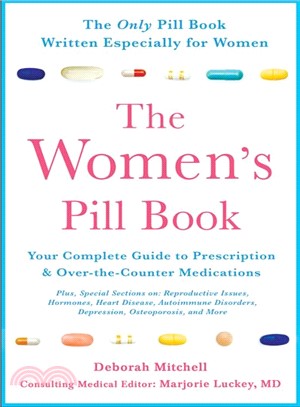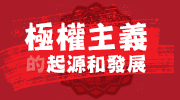The Women's Pill Book
商品資訊
ISBN13:9780312603823
替代書名:The Women's Pill Book
出版社:St Martins Pr
作者:Deborah Mitchell
出版日:2012/03/27
裝訂/頁數:平裝/271頁
規格:23.5cm*15.9cm*1.9cm (高/寬/厚)
商品簡介
作者簡介
DEBORAH MITCHELL is a widely published health journalist. She is the author or coauthor of more than three dozen books on health topics, including eight books for the St. Martin's Press Healthy Home Library series, as well as THE WONDER OF PROBIOTICS (coauthored with John R.Taylor, N.D.), FOODS THAT COMBAT AGING, YOUR IDEAL SUPPLEMENT PLAN IN THREE EASY STEPS, and WHAT YOUR DOCTOR MAY NOT TELL YOU ABOUT BACK PAIN (coauthored with Debra Weiner, M.D.).
名人/編輯推薦
Part One
Health Challenges Facing Today's Women
Chapter 1
Unique Reproductive Challenges
A woman's unique ability to become pregnant and give birth is a thing of joy and wonder, and a cause for celebration for women around the world. The underlying mechanisms involved in allowing birth to occur are extremely complex and encompass a myriad of intimately and intricately related elements. At the same time, there are numerous health issues that can affect a woman's ability to get pregnant, have a healthy pregnancy, and deliver a healthy child, including conditions such as abnormal menstrual function, polycystic ovarian syndrome, gynecologic cancers, endometriosis, pelvic inflammatory disease, and more.
In this chapter we look at the conditions and diseases that play a role in a woman's ability to get pregnant and give birth, the medications that are often prescribed to treat these health challenges, and how these medications may affect a woman's reproductive and overall health. (For your convenience, each medication entry in part two has a subheading titled "Of Special Interest to Women," where we note how a specific medication may affect a woman's reproductive health.) We also discuss the impact medications generally can have on a woman's health during pregnancy and after. These are times in a woman's life when her medication decisions affect not only her but her child as well.
Menstruation
Some women call it their period, others call it the curse. Perhaps you're at the stage in your life when you call it history! Whatever you call it, menstruation is central to a woman's reproductive health. Key elements of your reproductive health are hormones, and the hypothalamus and pituitary gland work together to control six of the main hormones necessary to keep your reproductive system functioning: estrogen, follicle-stimulating hormone (FSH), gonadotropin-releasing hormone (GnRH), luteinizing hormone (LH), progesterone, and testosterone.
This Is Your Period
Briefly, your menstrual cycle and these hormones work like this: Your hypothalamus releases GnRH, which triggers a chemical reaction in your pituitary gland to produce FSH and LH. In response to the release of FSH and LH, your ovaries produce estrogen, progesterone, and testosterone. The synchronization of all these hormones allows a normal menstrual cycle to occur.
Other substances involved with menstruation include prostaglandins, which cause your uterine muscles to contract so you can shed your menstrual blood. Women who have an excessive amount of prostaglandins in their uterus can experience very painful periods, a condition that is known as dysmenorrhea. Dysmenorrhea involves severe pelvic pain and often nausea and vomiting, back and thigh pain, headache, and other symptoms. An excess of prostaglandins is a cause of primary dysmenorrhea, while women who experience these symptoms as a side effect of other reproductive problems, such as endometriosis, pelvic inflammatory disease, uterine fibroids, or use of an IUD, are said to have secondary dysmenorrhea.
Treating Menstruation and Dysmenorrhea
If you still experience menstruation, chances are you also experience some annoying, uncomfortable, even distressing symptoms. While most women report mild to moderate symptoms of cramping, headache, breast tenderness, and bloating, others suffer more serious effects associated with dysmenorrhea. Statistics on how many women experience dysmenorrhea, range from 10% up to 90%, but the important thing is that if you are sufferingwith severe symptoms, the only statistic you care about is you, and you want relief.
For mild menstrual symptoms, a heating pad or a warm bath may be helpful. Some women report relief from natural remedies such as black cohosh or fish oil, and a limited number of scientific studies do back up their benefits. Effective over-the-counter or prescription nonsteroidal anti-inflammatory drugs (NSAIDs) such as ibuprofen, mefenamic acid, or naproxen can alleviate cramps and muscle aches, and are also helpful if you have dysmenorrhea, as these drugs reduce the concentrations of prostaglandins.
The FDA has approved the NSAIDs diclofenac, ibuprofen, ketoprofen, meclofenamate, mefenamic acid, and naproxen for treatment of dysmenorrhea. Your health-care provider may also prescribe oral contraceptives along with NSAIDs to treat your primary dysmenorrhea symptoms. If your doctor has determined that your severe menstrual symptoms are associated with another reproductive condition, it is necessary to treat that health issue simultaneously with your dysmenorrheal symptoms.
主題書展
更多書展今日66折
您曾經瀏覽過的商品
購物須知
外文書商品之書封,為出版社提供之樣本。實際出貨商品,以出版社所提供之現有版本為主。部份書籍,因出版社供應狀況特殊,匯率將依實際狀況做調整。
無庫存之商品,在您完成訂單程序之後,將以空運的方式為你下單調貨。為了縮短等待的時間,建議您將外文書與其他商品分開下單,以獲得最快的取貨速度,平均調貨時間為1~2個月。
為了保護您的權益,「三民網路書店」提供會員七日商品鑑賞期(收到商品為起始日)。
若要辦理退貨,請在商品鑑賞期內寄回,且商品必須是全新狀態與完整包裝(商品、附件、發票、隨貨贈品等)否則恕不接受退貨。
























